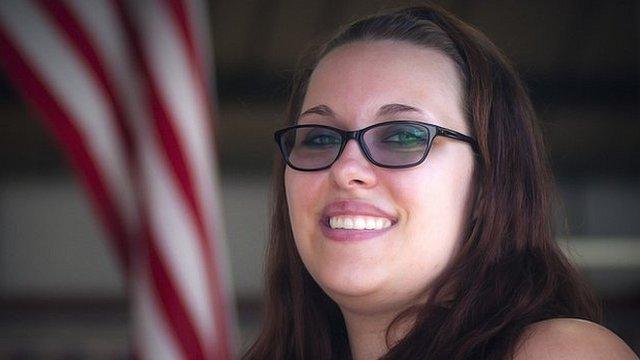Coronavirus: How is Suffolk's Little America coping in lockdown?
- Published
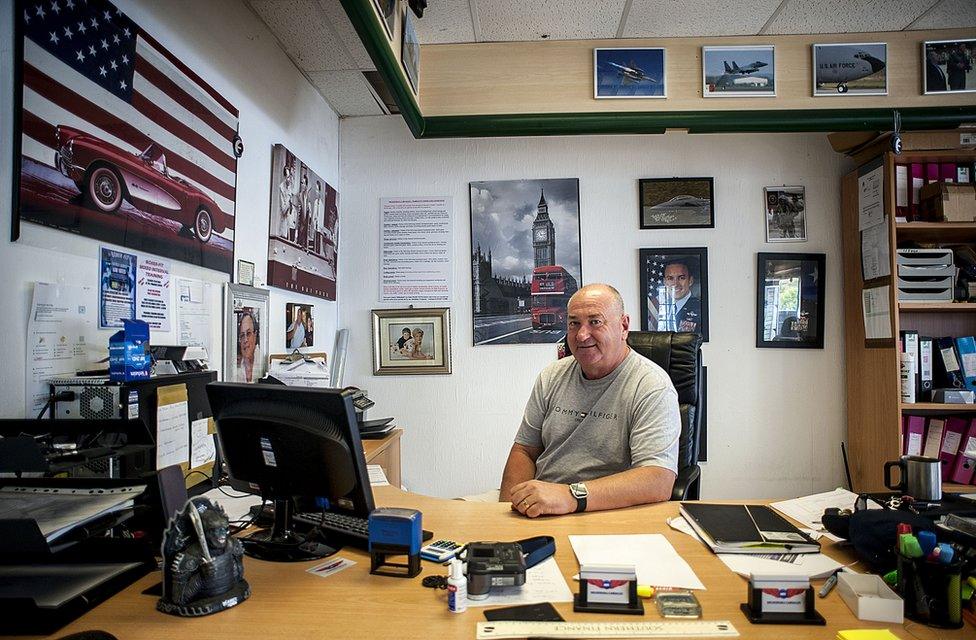
Terry James believes the pandemic will change the way people work in the future
While most of the country looks to Downing Street for guidance on the coronavirus crisis, there is one corner of England whose fortunes are also influenced by the decisions of the US government. How are the communities that rely so heavily on the US airbases coping with the pandemic?
There is no defined border for "Little America" - arriving there is mostly signalled by a preponderance of large, American cars and signs bearing the Stars and Stripes.
It is an area of north-west Suffolk largely reliant on the custom of those occupying the US military bases at its heart - RAF Lakenheath, Mildenhall and Feltwell.
Between them, the bases employ more than 12,000 US and UK nationals - and the United States Air Force claims their presence is worth a combined £700m ($910m) to the surrounding economy.
When the BBC visited in 2017, it found a community where the American dollar thrived. But in the wake of the coronavirus pandemic, these businesses are as much affected by the dictates of the US military as those of the British government.
Before the crisis hit the UK, Terry and Sylvia James would see a steady flow of air service personnel perusing the automatic cars at their showroom, Mildenhall Car Sales.
The firm also usually carries out up to 40 MOTs a week and offers advice to its customers about driving on the "wrong" side of the road.
But the couple has temporarily shut up shop.
About 80% of their business came from the US air bases, which have suspended their usual service rotations under Stop Movement Orders made by the US Department of Defence banning movement or travel, except in exceptional circumstances.
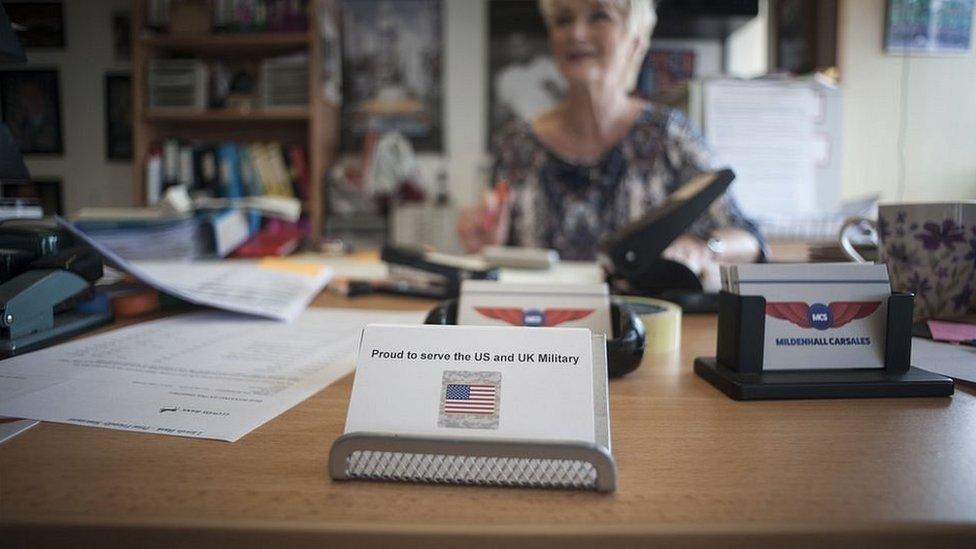
Sylvia James says some service personnel come in simply to chat
"We have furloughed five staff," says Mr James. "The government's scheme to pay 80% of salaries has been fantastic, and I am going to pay them the other 20%.
"I could have kept the MOT centre open but there was no point because I could not have got the parts for repairs anyway."
A dramatic drop in custom was one aspect behind his closure; the other was that because of social distancing, showing customers prospective cars was not an option.
He believes the pandemic will fundamentally change the way people work in the future - the "personal touch" offered by businesses such as his might become a thing of that past as employees continue to work remotely.
As for when his own business will reopen, Mr James remains uncertain.
He says it will be dependent on what the government requires and when his suppliers are back up and running. He has a tentative target of 1 June, but that is not set in stone.
"We have to rely on what Boris says, but I'm trying to keep positive," he adds.
"Social distancing will make it very difficult. But we have the 'welcome back' banners and flags ready to put out once we get the OK."
You might also be interested in:
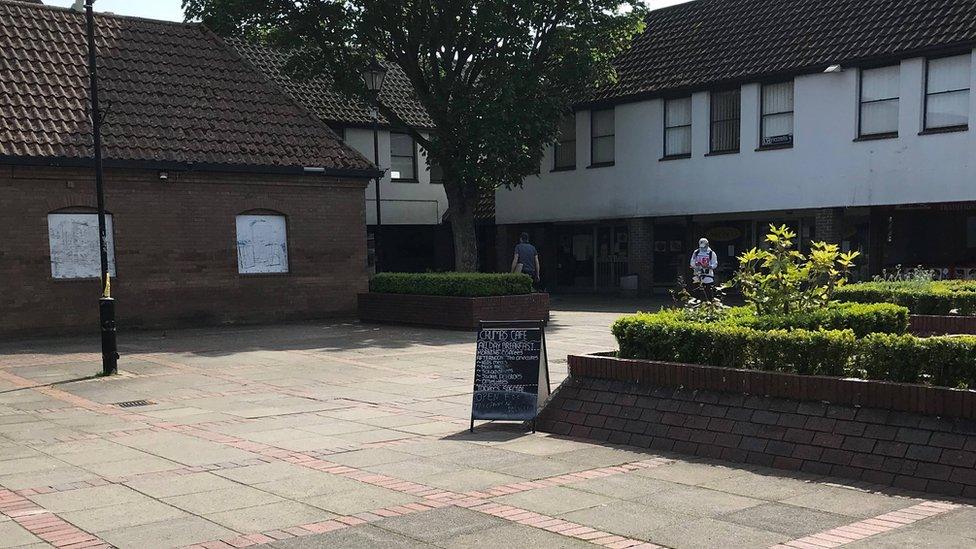
Like so many places, Mildenhall is a much quieter place during lockdown
In the town of Mildenhall, which lies at the south-eastern side of the base, most shops are closed until further notice.
It is usually a bustling centre serving both those living in the town and the numerous outlying villages, but only its Co-Op supermarket, which houses its post office, regularly opens its doors.
Town centre manager Mark Knight says the bases are a crucial part of life in the area and the absence of US personnel on the town's streets had been noticed and felt.
"The base and the town are closely entwined," he explains. "For example, when we were having an issue with a bridge here the base sent out a team of engineers to help out. They come and help us out for our summer events."
"Everyone is feeling the pressure. People have been told to stay away, whether they're Americans or locals."
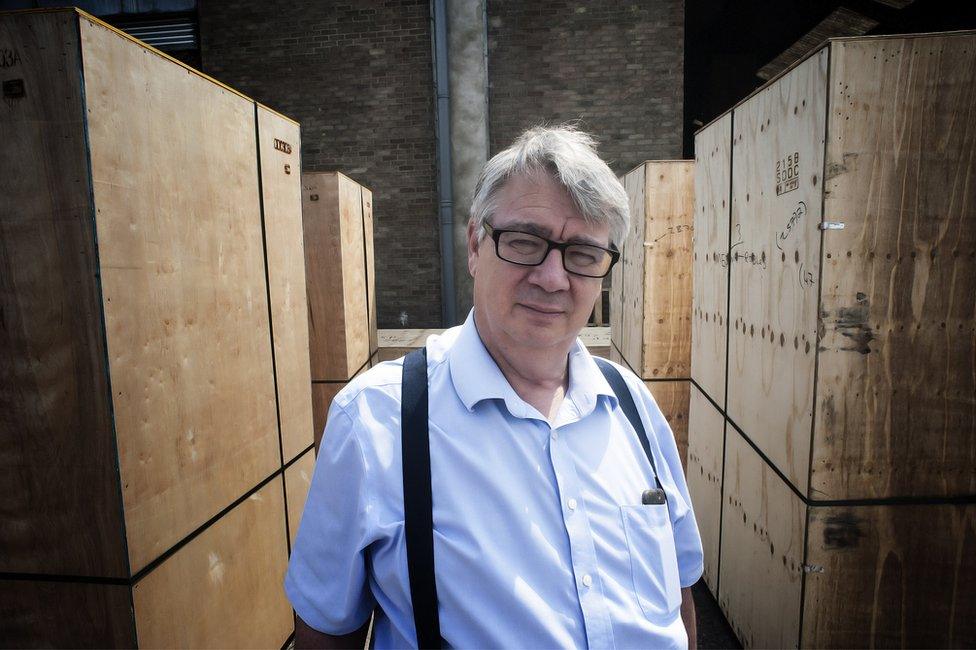
Bill Flynn says 50% of his custom has disappeared
Also feeling the effect is Bill Flynn, the managing director of a removals firm in the town. In a normal year, his company Safepac handles about 2,000 US house shipments, helping service families move their belongings back and forth "across the pond".
Because base staff are currently unable to move, business has "disappeared" and he has had to furlough 30 people.
"Cash-flow has been a killer," he says. "What has happened is 50% of my business has gone and we are staring down a barrel."
The haulage side of his business is still functioning and his costs - as a result of the drop in the price of fuel - have decreased.
But Mr Flynn remains concerned about the general economic future.
"Even when the furlough scheme ends and people return to work, what will the consumer confidence level be?"
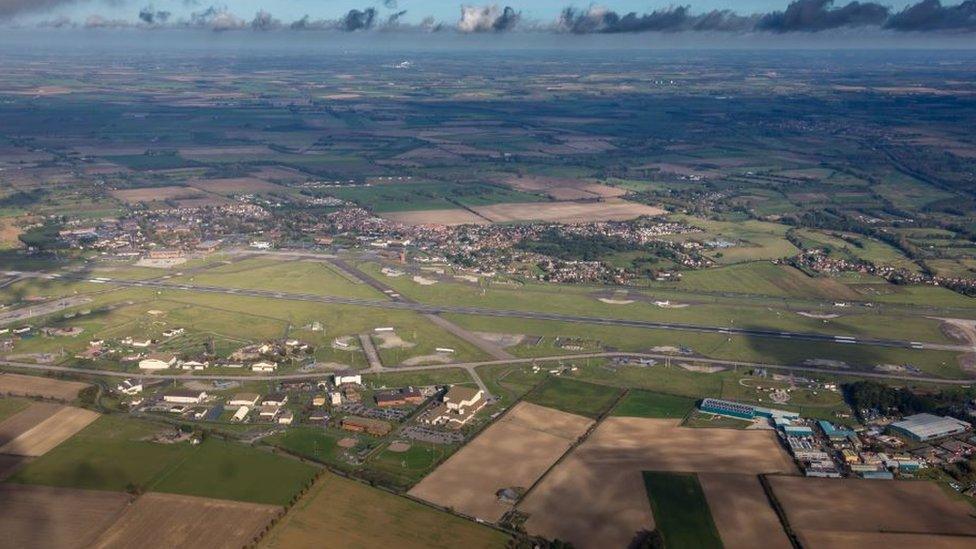
RAF Mildenhall, pictured, is one of three bases whose personnel support the local economy
The Stop Movement Order came into effect at the bases on 25 March, four days after their first confirmed cases of coronavirus - one, an active duty airman at RAF Lakenheath, the other a dependent of a service member at RAF Mildenhall.
The US Department of Defense recently extended the order to 30 June.
A spokesman for the base says the restrictions were implemented to help stop the spread of coronavirus and base leaders were reminding airmen to follow both the UK government's guidelines and the US order.
"[We are] communicating to Liberty Airmen and families the importance of adhering to UK lockdown measures regarding physical distancing, limiting travel to/from work, and travelling for essential needs only."
Mr Knight says that planning for the end of lockdown, and the re-opening of the business bearing the brunt of their disappearing customers, is not an option at the moment.
They - as with much of the country - are looking to Sunday, when the prime minister will reveal whether any restrictions can be eased.
"We are holding our breath," says Mr Knight. "And keeping positive."


A SIMPLE GUIDE: How do I protect myself?
IMPACT: What the virus does to the body
RECOVERY: How long does it take?
R-NUMBER: Is this the crucial number?
ENDGAME: How do we get out of this mess?


Find BBC News: East of England on Facebook, external, Instagram, external and Twitter, external. If you have a story suggestion email eastofenglandnews@bbc.co.uk, external
- Published28 April 2020
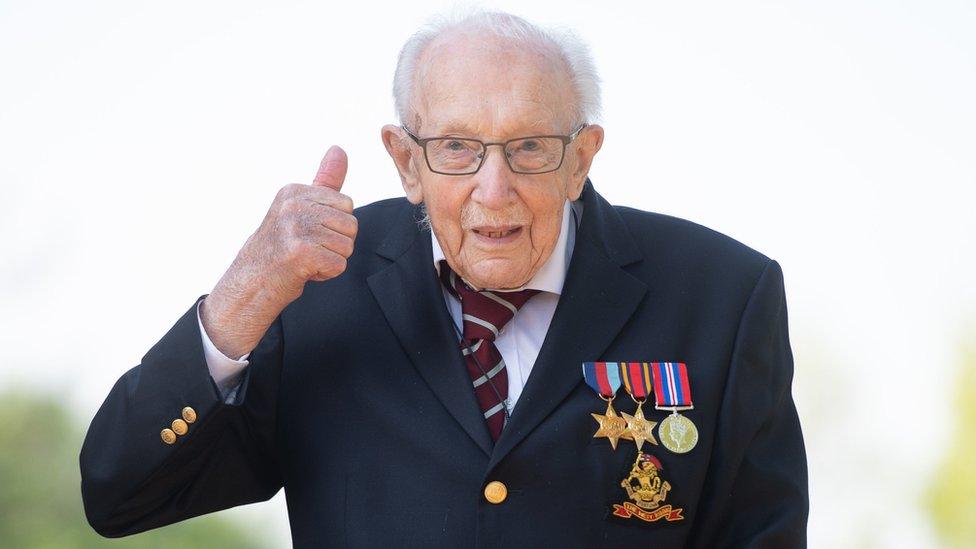
- Published27 April 2020
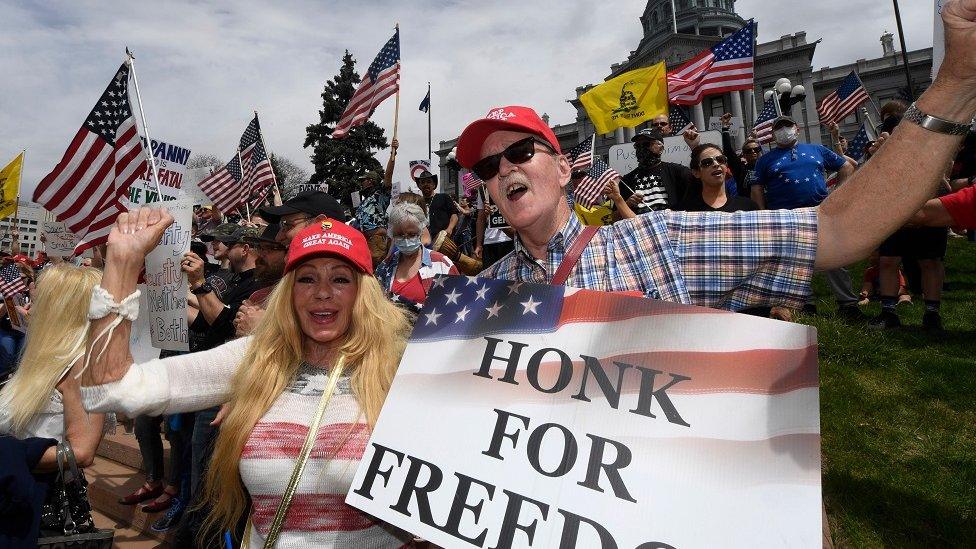
- Published4 July 2017
